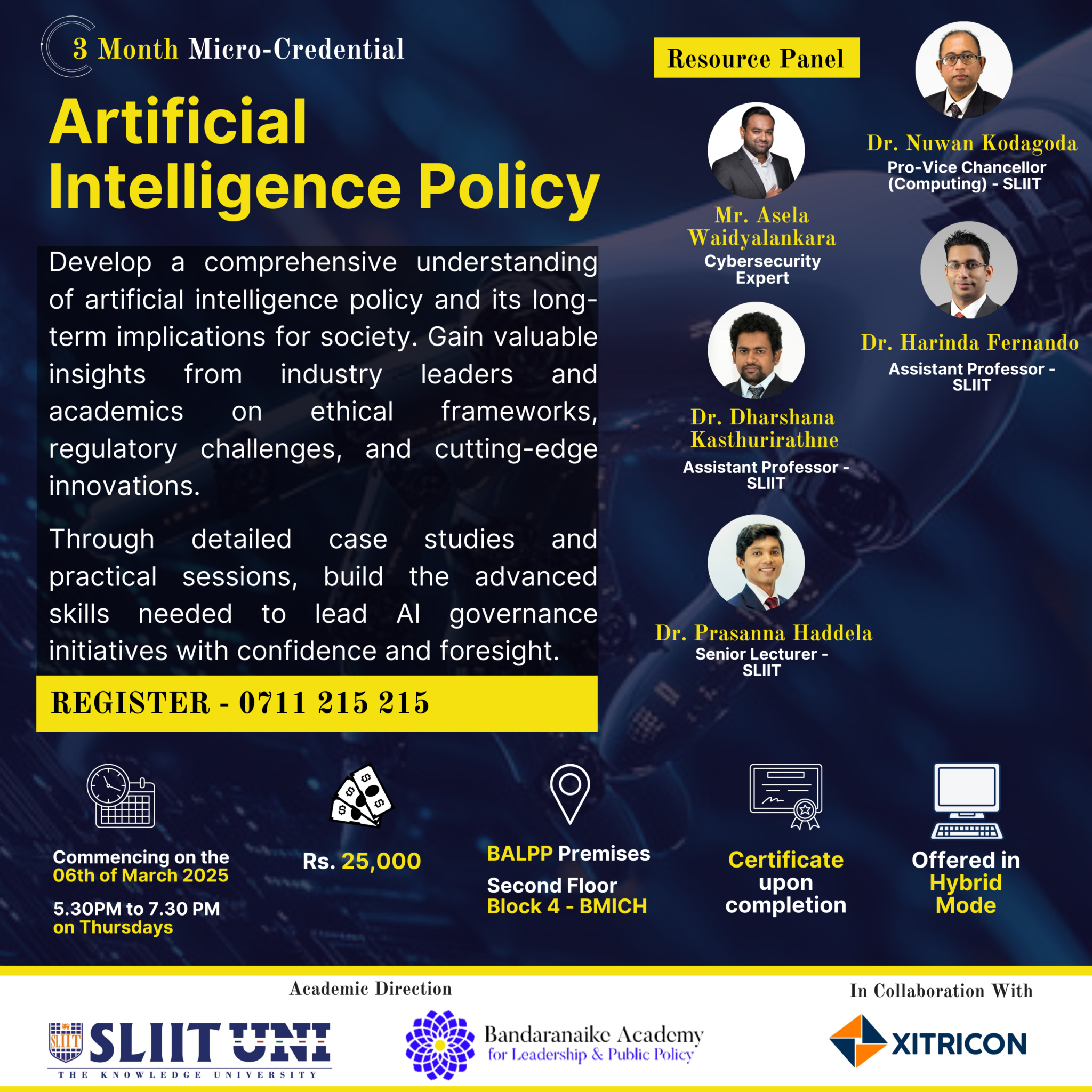Education Policy Analysis

- Overview
Micro-Credential in Artificial Intelligence Policy
The Micro-Credential in Artificial Intelligence (AI) Policy represents a cutting-edge educational initiative designed to address the urgent need for skilled professionals who can navigate the complex intersection of technology, governance, and society. As artificial intelligence rapidly evolves from experimental technology to a foundational element of modern infrastructure, the demand for informed policymakers, regulatory experts, and organizational leaders has never been greater.
This specialized three-month program provides participants with a comprehensive understanding of AI governance frameworks, ethical considerations, and regulatory challenges that define today’s technological landscape. The curriculum addresses critical questions facing governments, corporations, and civil society organizations as they grapple with the transformative impact of AI systems on everything from healthcare and finance to criminal justice and national security.
This program is offered under the academic direction of SLIIT and the Bandaranaike Academy for Leadership and Public Policy (BALPP) in collaboration with XITRICON.
Program Objectives
This comprehensive program aims to:
Core Knowledge Development
- Explore the ethical, legal, and societal implications of artificial intelligence, including issues of algorithmic bias, privacy rights, autonomous decision-making, and the impact on employment and social structures
- Examine international AI governance frameworks and emerging regulatory trends, analyzing approaches from the European Union’s AI Act, China’s AI regulations, the United States’ executive orders, and other national and international initiatives
- Understand the technical foundations of AI systems sufficiently to inform policy decisions, including machine learning principles, data processing requirements, and system limitations
Practical Skills and Applications
- Provide participants with a structured approach to AI policymaking, including comprehensive risk assessment methodologies, compliance strategies, and stakeholder engagement processes
- Develop advanced leadership skills to guide AI governance initiatives across public and private sectors, with emphasis on cross-functional collaboration and strategic communication
- Master policy evaluation techniques for assessing the effectiveness of AI regulations and governance mechanisms
Critical Analysis and Real-World Application
- Engage participants in real-world case studies to critically assess AI policy challenges, including recent regulatory decisions, corporate governance failures, and successful implementation strategies
- Build capacity for future policy development by understanding emerging technologies and anticipating their governance implications
- Foster networks of practice among participants to support ongoing collaboration and knowledge sharing
Program Format and Delivery
The program is delivered in an innovative hybrid format that maximizes accessibility while maintaining high-quality educational standards:
In-Person Sessions
- Location: BMICH (Bandaranaike Memorial International Conference Hall), Block 4, Second Floor
- Schedule: Thursdays from 5:30 PM to 7:30 PM
- Format: Interactive seminars, panel discussions with guest experts, case study workshops, and peer collaboration sessions
Online Learning Components
- Comprehensive learning management system with recorded lectures, supplementary materials, and discussion forums
Flexible Learning Approach
The program is specifically designed to accommodate working professionals and students by:
- Evening Schedule: All sessions scheduled after business hours
- Hybrid Flexibility: Participants can access content both in-person and online
- Modular Structure: Self-contained modules allow for focused learning
- Professional Integration: Assignments designed to apply learning to participants’ current work contexts
Learning Methodologies
Interactive Discussions and Seminars
- Expert-Led Sessions: Presentations by leading practitioners in AI policy and governance
- Peer-to-Peer Learning: Structured discussions allowing participants to share experiences and insights
Case Study Analysis
- Real-World Scenarios: Examination of actual AI policy challenges and regulatory decisions
- Simulation Exercises: Role-playing exercises involving stakeholder perspectives
- Policy Impact Assessment: Analysis of implemented AI policies and their outcomes
For further inquiries and enrollment, please contact: 0711 215 215.






